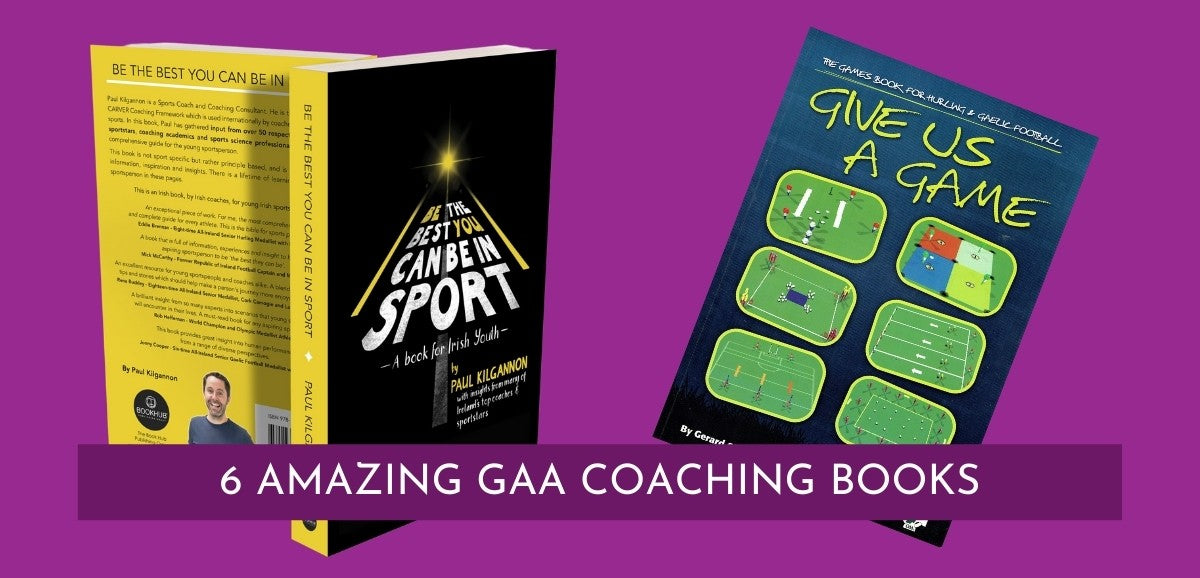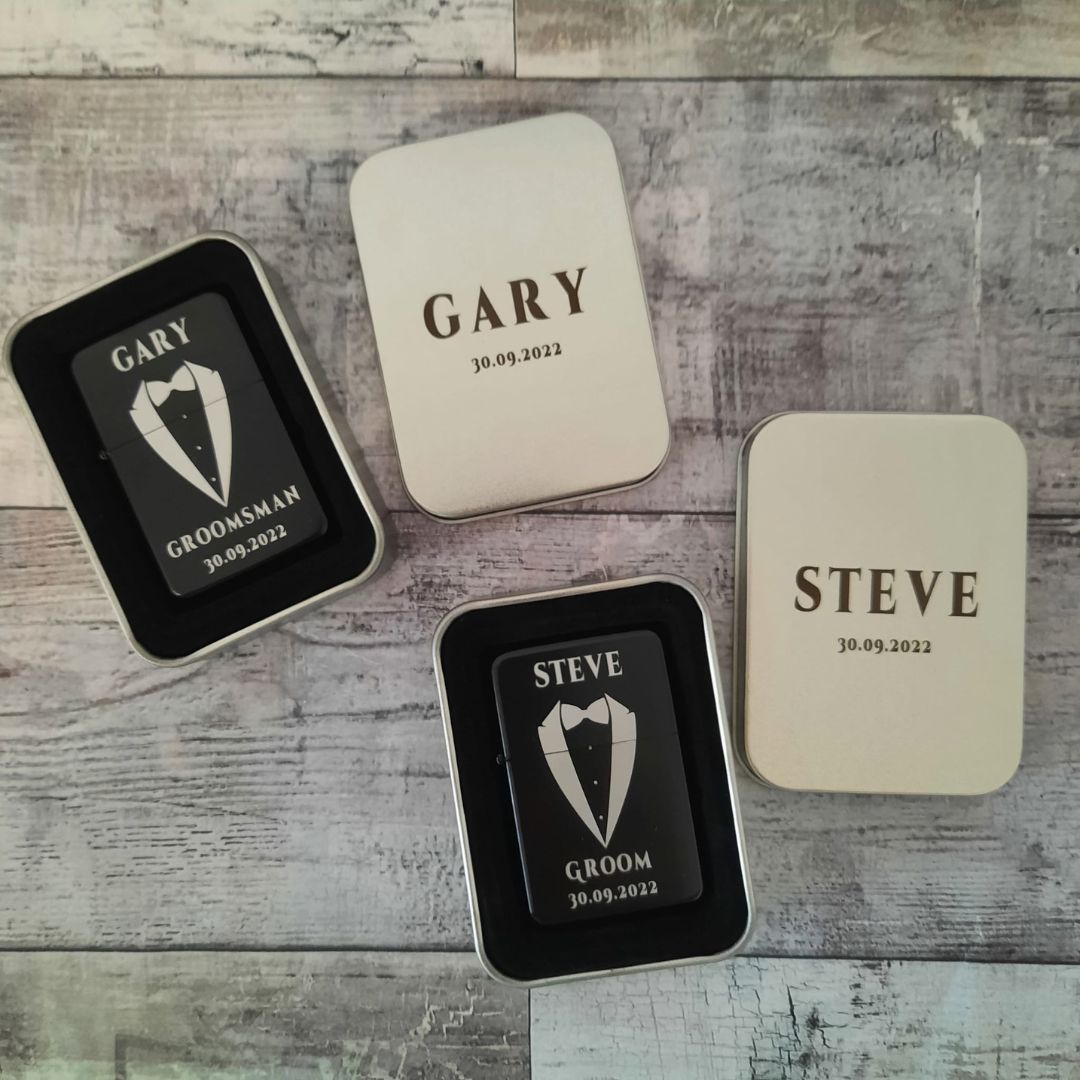GAA Coaching Books to Help Improve You, the Player & Your Team
We love our gaa coaching books – those that help to mould both the young and not-so-young Gaelic Games players and their mentors.
Currently, there are countless websites, podcasts and webinars offering insights and resources online, but as any GAA coach will tell you, a good book can also get the creative coaching juices flowing.
Here are six gaa coaching books that we have chosen (in no particular order) that coaches might find useful. And feel free to suggest the name of a book or other resource that you turn to and that might aid other coaches.
1) Give Us A Game: The Games Book for Hurling and Gaelic Football (by Gerard O’Connor)
Lauded by former Dublin senior football manager Jim Gavin and ex-Roscommon footballer Paul Earley, among others, Give Us A Game boasts over 270 games that can be used on the training ground with underage and adult players.
Quite often, training sessions can be repetitive or intense – or both – but, O’Connor’s book offers coaches superb ideas on how they can introduce a bit of fun into their session while still focusing on the skills of the game and fitness.
O’Connor, the GAA’s Games Development manager, also divides up these games into six sections, namely: Chasing & Fleeing Games, Target Games, Court Games, Field Games, Part Invasion Games and Full Invasion Games.
A number of these will already be familiar to coaches and, credit to O’Connor, any game he picked up elsewhere he has referenced at the back of the book.
For those coaches looking to develop a games-based approach to training, this book is an essential tool.
Give Us A Game Available Here on Dublin GAA website
2) Be The Best You Can Be In Sport: A Book for Irish Youth (by Paul Kilgannon)
A new addition to the market, Be The Best You Can Be In Sport, containing contributions from over 50 respected coaches and sports stars, is compiled by Galway’s Paul Kilgannon. Covering a wide range of topics, it is an invaluable tool for players and mentors.
Some of those to contribute to the publication are Cork star Rena Buckley (Values and Character), hurling guru Paudi Butler (Mindset for Learning), Kilkenny legend Henry Shefflin (Individual Practice), sports psychologist and former Galway hurler Tony Óg Regan (Application in Training), renowned Tipperary hurling coach Eamon O’Shea (Performance Analysis), Dublin LGFA star Sinead Aherne (Being A Teammate), and many more.
There are also contributions from those involved in rugby, soccer, athletics and boxing, with each topic attributed to a section and each section, in turn, structured to lay out a development pathway for players and coaches.
The book has also been endorsed by Kilkenny’s Eddie Brennan, former Republic of Ireland manager Mick McCarthy, World Champion and Olympic medallist Rob Heffernan and Dublin’s Jonny Cooper.
Be The Best You Can Be in Sport Avaialable Here from ShopBallinasloe
3) Advanced Game Sense (by John Morrison)
For any coach uncertain as to the breakdown of a training session – or what a session should look like – the late John Morrison’s Advanced Game Sense provides a superb template by mapping out 16 sample Gaelic football sessions in a clear and structured manner and can also be modified for hurling.
These are not simply 16 session plans on the page, either. Morrison, who coached Mayo to the 2006 All-Ireland senior football final, also looks at pre warm-up, advocating that those precious few minutes before the session should be wisely used to re-enforce the ‘big picture’ among the players by giving them direction.
After running through a warm-up, Morrison embraces a drill and games-based approach, with each activity seeking to accomplish a specific goal. Some of the headings these facets of training fall under are: Individual & Group Defence; Support Play; Penetration (width and depth); Break-Ball Games; and Concept/Prompt Games.
Advanced Game Sense Available Here on Issuu
4) Optimising Performance in Gaelic Football (by Liam Sammon)
Although published back in January 2008, Liam Sammon’s Optimising Performance in Gaelic Football is as relevant today as it was 13 years ago.
Sammon, who was an All-Ireland senior winner with Galway in 1966 and later managed the Tribesmen in 2008, is a noted purist of the Gaelic football. He places the greater emphasis on skills – which, sadly, is not the case with all coaches – and a games-based approach to training.
Sammon’s offering presents a series of drills and games focusing on the various skills, scoring, game quickness, and mental sharpness, along with other elements such as speed, endurance and agility.
It’s well worth getting a copy, if still available. Most of the drills and games can also be modified for hurling and camogie.
5) Creative Game Sense (by John Morrison & Gerard O’Connor)
A collaboration between two of the above coaches, Creative Games Sense focuses on players’ decision-making by employing conditioned and modified games. Each is designed to challenge the player – not only in terms of learning the basic skills but to perform the skill in a games setting.
There are 12 chapters ranging from textbook skills to session preparation and include the themes of reading the game, developing the intelligence game, a successful approach to long kick passing and transition from defence to attack.
In addition to offering instruction on how best to approach these areas of play, the book may inspire coaches – Gaelic football and hurling/camogie – to modify these activities to suit their team. As coaching books go, Creative Game Sense is another gem.
Creative Game Sense Available Here from Issuu
6) Coaching: The Art and the Science (by Dave Chambers)
Given this book was published in the United States, it can be taken that it is not a GAA book. What it is, however, is a comprehensive resource in cultivating a positive coaching strategy and creating a successful narrative around management and team.
Chambers, a former National League hockey coach, emphasises that the minute details – often overlooked by a coach – are just as important as the bigger subjects of team management, physical preparation, nutrition and psychological preparation, which he is also strong on.
In his book, Chambers challenges the reader/coach on self-management – their philosophies, values, ethical decision-making and their own time and stress management. He also establishes what team rules and values, the process of selecting captains, periodisation of training and the ideal performance state should look like.
Although this book may be difficult to find in a local bookshop, it is available online.
Coaching: The Art and the Science Available Here on Amazon UK
Other Great Resources for GAA Coaching:
Games to Challenge your Coaching, Prepare to Win, Developing Gaelic Footballers and Coaching the Individual in Team Sports (all by Philip Kerr);
GAA Fun Do (by GAA Games Development);
Camogie Player Pathway: Phases of Camogie Player’s Development (by Cumann Camógaíochta na Gael);
Training and Optimal Health for Sports (by Shane Fitzgibbon);
In Pursuit of Excellence (by Terry Orlick).










